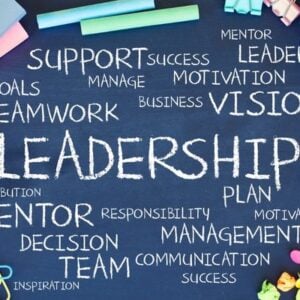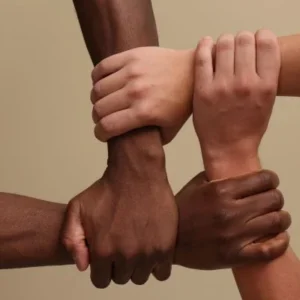When women gain economic independence, communities thrive. Globally, unlocking women’s full potential in the workforce could generate a staggering $7 trillion boost to the global economy.
From the Ground Up: Alice’s Journey
Alice, a mother of five, fled conflict in her home region and landed in a displacement settlement with nothing. She began by doing odd jobs—laundry and collecting cassava leaves—just to survive. But she had a talent for sewing and spent her days earning little at a neighbor’s tailoring shop.
A small startup grant changed everything. With that support, she acquired her own sewing machines and opened a tailoring business. Soon, a savings-and-loan group stepped in, offering her training, equipment, and a small monthly allowance during the training period.
Picking Up Speed
With newfound confidence and resources, Alice expanded. She hired sewing assistants (local students), started selling fabric, and experimented with other ventures. Teaching herself to manage livestock, she also sold popcorn, reinvesting the profits into her business and earning triple her initial investment.
Her long-term plan? Raising school fees for her children with income from poultry, and building a thriving sewing business. “I’ll be a boss lady,” she says with a bright smile.
Strength in Numbers: Mako’s Story from Somalia
In Somalia, Mako’s life began under constant instability. During a severe famine, she felt the weight of supporting her young children alone. A local program offered her an opportunity: training, skills, and entry into a Self-Help Group.
Together, Mako and nine other women learned how to build businesses and support each other. What began with selling household goods soon blossomed into a cooperative. Mako grew stronger, not just financially but emotionally—no longer fighting for survival alone, but helping her broader community during crises like droughts.
Why Empowering Women Makes Sense
- Women frequently funnel the majority of their earnings back into their families—supporting children’s education, health, and wellbeing.
- They also reinvest in their communities, building resilience and shared prosperity.
- Yet across the world, legal barriers still hold women back from fully participating in economic life—especially in regions grappling with conflict and instability.
Tackling these barriers, supporting women’s abilities—and trusting their resourcefulness—results in ripple effects far beyond their own livelihoods.
Key Themes
- Resilience in adversity: Women like Alice and Mako demonstrate how resourcefulness transforms dire circumstances into opportunity.
- Community and collaboration: Financial tools like savings groups and cooperatives not only offer capital but also social support.
- Economic ripple effects: Empowered women don’t just uplift themselves—they contribute to family, community, and broader economic growth.







